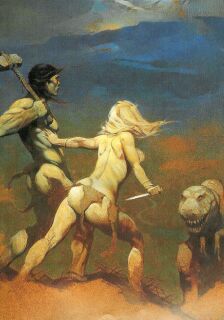If it were a million little pieces, who would read it?
There once was a man named James Frey who wrote a book called "A Million Little Pieces." In this autobiography he described a fascinating life of torment and recovery. This book caught the eye of Oprah and she had him on her show. Mr. Frey sold millions of his books and everyone lived happily every after.
Except not quite. The Smoking Gun tried to get a mugshot of the dangerous Mr. Frey when he was arrested in one of the most exciting parts of the book, only to find out that Mr. Frey was a quiet little mouse of a man, not the roaring tiger his book described. Oprah gets upset and admonishes Mr. Frey. He is disgraced. The end.
But what does this story mean for all of us? As a fiction author I suppose I should be outraged -- when we write stories that are made up we call them "fiction." Real-life stories are "non-fiction."
The line has always been blurred, and in my opinion autobiography is the grayest of the gray areas. If you're writing a non-fiction book about the making of the Apache Helicopter, you'd better get your dates and facts right. If you're writing a book about Igor Sikorsky, the inventor of the helicopter, you'd better give me some dish. Tell me some good stories!
If Mr. Frey had written a meticulous autobiography, who would read it? Embellishing your life story is not only necessary for writers, but for all the rest of us too. When Grandpa gathers the kids around to tell them about the sharks following the submarine during World War II, he doesn't tell them about the long, boring days when they did nothing but post watch and play cribbage. He cuts out the boring parts and tells an exciting story -- or the kids will lose interest.
My opinion of Mr. Frey is that he took this intellectual liberty a bit too far, and created a life that he didn't actually live. He got what he deserved, public humilation.
As for me, when I tell stories I'm going to keep cutting out the dull parts. Even if the tale is a true one.
Except not quite. The Smoking Gun tried to get a mugshot of the dangerous Mr. Frey when he was arrested in one of the most exciting parts of the book, only to find out that Mr. Frey was a quiet little mouse of a man, not the roaring tiger his book described. Oprah gets upset and admonishes Mr. Frey. He is disgraced. The end.
But what does this story mean for all of us? As a fiction author I suppose I should be outraged -- when we write stories that are made up we call them "fiction." Real-life stories are "non-fiction."
The line has always been blurred, and in my opinion autobiography is the grayest of the gray areas. If you're writing a non-fiction book about the making of the Apache Helicopter, you'd better get your dates and facts right. If you're writing a book about Igor Sikorsky, the inventor of the helicopter, you'd better give me some dish. Tell me some good stories!
If Mr. Frey had written a meticulous autobiography, who would read it? Embellishing your life story is not only necessary for writers, but for all the rest of us too. When Grandpa gathers the kids around to tell them about the sharks following the submarine during World War II, he doesn't tell them about the long, boring days when they did nothing but post watch and play cribbage. He cuts out the boring parts and tells an exciting story -- or the kids will lose interest.
My opinion of Mr. Frey is that he took this intellectual liberty a bit too far, and created a life that he didn't actually live. He got what he deserved, public humilation.
As for me, when I tell stories I'm going to keep cutting out the dull parts. Even if the tale is a true one.


0 Comments:
Post a Comment
<< Home